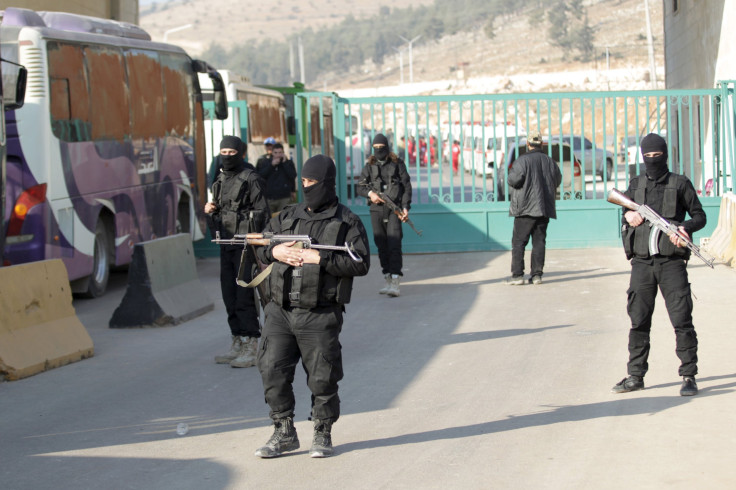Who Is The Syrian Opposition? Islamist Rebels Unite As US Lawmaker Meets Assad

Several influential Islamist groups within Syria's opposition announced Thursday they were uniting in hopes of reversing a series of political and strategic losses at the hands of government and jihadist forces. The development comes as a Hawaii lawmaker revealed a previously unannounced visit to Syrian President Bashar Assad and called on Washington to stop supporting insurgent organizations.
Rebel groups Suqour al-Sham, Jaish al-Sham (Idlib Division), Jaish al-Mujahideen, Fastaqim Union and al-Jabha al-Shamiya (Western Aleppo Branch) declared their allegiance to Ahrar al-Sham, an already established Salafist coalition attempting to overthrow the Syrian government in the country's nearly six-year civil war. The announcement was shared on social media and stated the move was a step toward unity for "achieving the goals of the blessed Syrian Revolution." A follow-up statement added the Revolutionary Sham Brigades to the coalition and said any aggression committed against one of the coalition groups would be a "declaration of war."
The coalition came in response to a series of attacks Tuesday on the Free Syrian Army and other armed groups by the powerful jihadist organization, Jabhat Fatah al-Sham, formerly known as Al Qaeda's Nusra Front. Massive assaults targeted positions held by groups such as the Free Syrian Army, Jaish al-Mujahideen and al-Jabha al-Shamiya in the Idlib and Aleppo provinces.
The Free Syrian Army was once a prevailing force among the Syrian opposition, but has since been gutted by major defections to fundamentalist groups and government forces, whose campaign has been bolstered by Russian and Iranian support. Assad's recapture of Aleppo last month was seen as a turning point in the war and caused further divisions among the Syrian opposition. Jabhat Fatah al-Sham and Ahrar al-Sham have competed for influence in the wake of the Free Syrian Army's decline.
While Ahrar al-Sham has publicly disavowed global jihad, it has been "at least on Al Qaeda's periphery" according to Charles Lister of the Brookings Institution's Doha Center. The group has styled itself as the mainstream Sunni Muslim alternative to more radical groups such as Jabhat Fatah al-Sham and the Islamic State group, also known as ISIS, but has refused to take part in peace talks hosted by Russia, Iran and Turkey.
VERY BIG news -
— Charles Lister (@Charles_Lister) January 26, 2017
Suqor al-Sham, Jaish al-Islam, Jaish al-Mujahideen, Tajamu Fastaqim & Al-Jabhat al-Shamiya have *ALL* joined Ahrar al-Sham. pic.twitter.com/ay2k2rfBFj
Meanwhile, Rep. Tulsi Gabbard returned from a surprise trip to Syria where she said she met with Assad. In an interview Wednesday with CNN, Gabbard said that, despite Washington's reservations toward Assad, his leadership would be necessary toward ending the conflict that has killed hundreds of thousands of Syrians and displaced millions more.
"Whatever you think about President Assad, the fact is that he is the president of Syria," Gabbard said. "In order for any peace agreement, in order for any possibility of a viable peace agreement to occur there has to be a conversation with him."
Gabbard, a veteran of the Iraq War, has previously opposed U.S. intervention in Syria, especially against Assad's government. She has also been critical of former President Barack Obama's support for rebel organizations and said Wednesday that the U.S. and its allies should halt all support to "terror groups," a number of which are allied to Al Qaeda.
President Donald Trump has also expressed support for working with Assad.
© Copyright IBTimes 2024. All rights reserved.






















